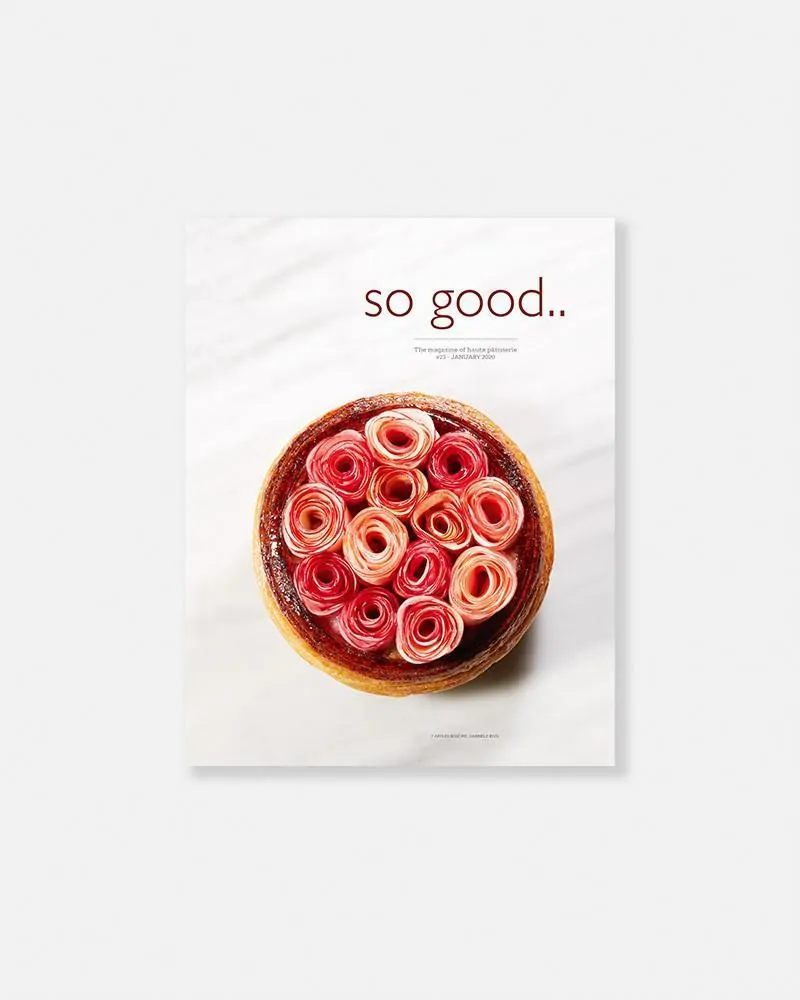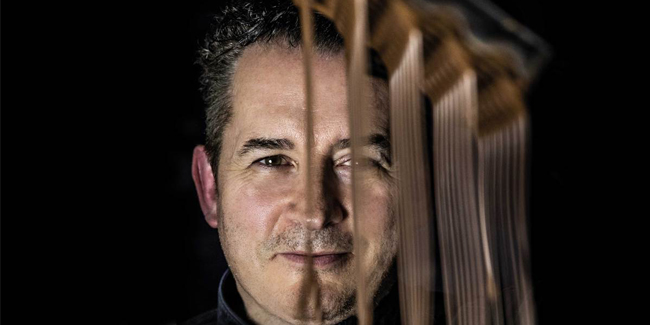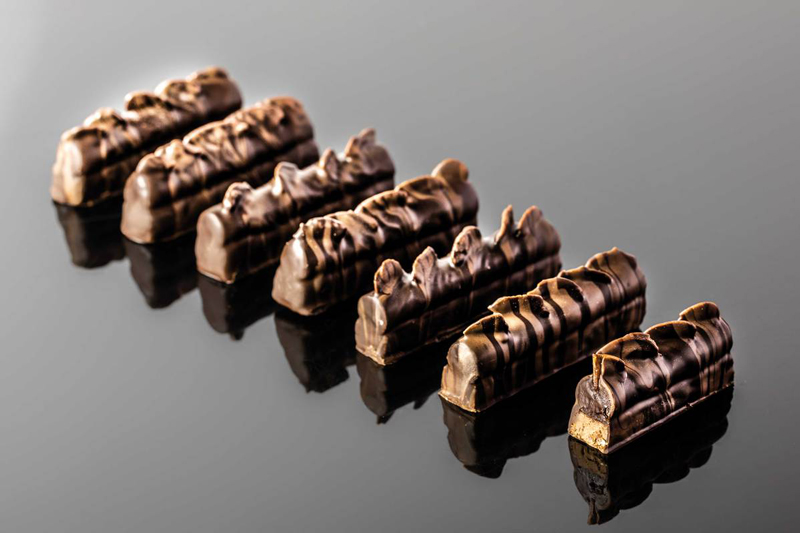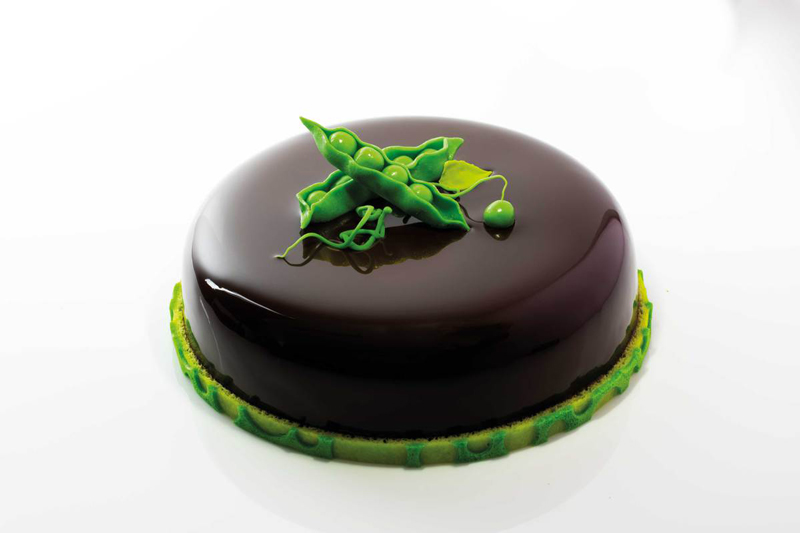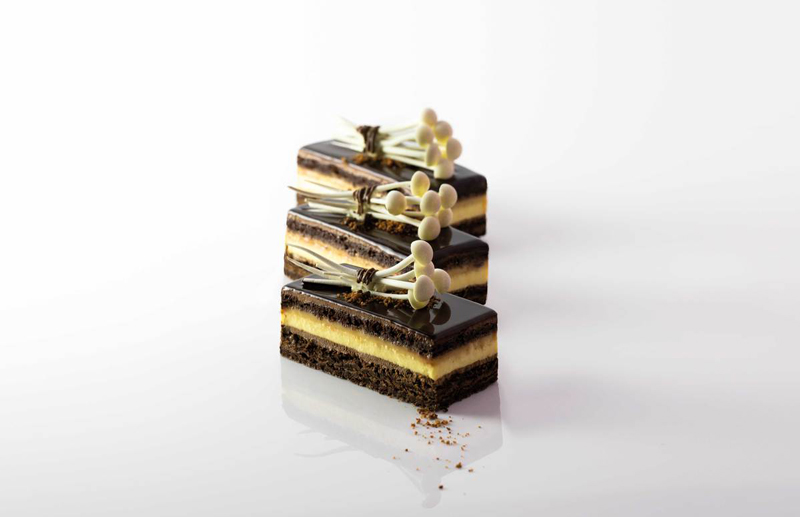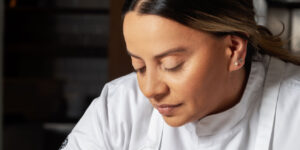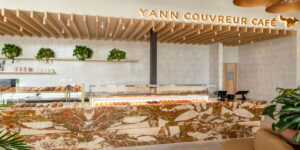Categories Pastry Chef Articles
Paul Kennedy: ‘I firmly believe that people will always want to eat cake’
Author:
Alberto Ruiz
TAGS #
Kirsten Tibballs Pastry Interviews Paul Kennedy so good #23
Every year around 2,800 students pass through his hands, most of them with little experience but a huge passion for pastry. Paul Kennedy’s daily challenge is for example ‘to develop a course on how to create and understand puff pastry. I need to be able to teach it to people who have never made puff pastry before in two days, as well as explain the concept of Mille Feuille and other basic pastry processes’, he explains.
But before his current responsibility at Savour Chocolate & Patisserie School (Melbourne) under the command of Kirsten Tibballs, pastry chef Kennedy already treasured a vast professional career since he began in the trade in 1982. All this experience allows him to observe both current trends and the future of patisserie in a sensible and practical way, ‘when I develop recipes or concepts, I now have to start with two simple questions: could the average person create this, and can it be made within the time constraints?’. This poses no obstacle when it comes to moving on, ‘I try to push myself to use different flavours and ingredients. It doesn’t always work, but that is the addictive part of this industry. I want to keep pushing the boundaries’, the chef concludes.
In addition to an interesting interview, Paul Kennedy shares with us three delicious creations exclusively on these pages that are sure to work.
When, how and why did you decide to go into the world of pastry?
I started my apprenticeship in July of 1982. It seems like yesterday some days, and other days, I think it was a century ago. Actually, it was a century ago… I fell into the industry by chance really. I was working in a bakery as a 16-year-old, just washing dishes, with no intention of a career in the food industry. I didn’t get the results I needed in school so my boss at the bakery gave me the opportunity to start an apprenticeship while I was waiting to resit my exams the following year. I never went back. I loved the people more than the job at the time.
‘I try to push myself to use different flavours and ingredients. It doesn’t always work, but that is the addictive part of this industry. I want to keep pushing the boundaries’
What are you working on currently?
I am trying to develop a course on how to create and understand puff pastry. I need to be able to teach it to people who have never made puff pastry before in two days, as well as explain the concept of Mille Feuille and other basic pastry processes. As puff pastry is a difficult concept to grasp, being able to explain it in a concise, easy and applicable way can be difficult. Completing this is a challenge as I also need to continually update and recreate products for more than 20 other classes.
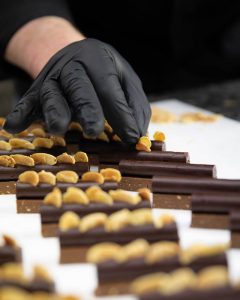
What do you find most fascinating about your job?
I’m in a very privileged position at Savour. I see an average of 2,800 students per year and they come to the school with little or no experience. Of course, we have professionals, but mostly it’s people (let’s call them foodies) that have a love for food. They come for many reasons such as a career change, to learn new techniques or just to have a fun day out. People come from all walks of life. I deal in the happiness industry. It’s true that chefs generally don’t get to experience that as we are usually back of house, so it’s a very rewarding part of my job.
What is the most important thing for anyone starting in this profession?
The most important thing for me is to never lose your hunger for knowledge and the ability to change, whether that is a mindset or a product. You always need to keep moving forward. I am amazed by the skill level of pastry chefs all over the world. I see pastry every day, beautiful creations that inspire me to be better.
I deal in the happiness industry. It’s true that chefs generally don’t get to experience that as we are usually back of house, so it’s a very rewarding part of my job.
Courses, seminars, congresses, schools, a crowd of consultants around the world… Is there a ‘bubble’ in the education in pastry?
The industry has changed dramatically in the last ten years. From social media to pastry schools and online classes, every possible subject is catered for. The ability to acquire knowledge or get a ‘hands-on’ experience is vast and varied. This is an amazing time and things can only get better. Obviously, I would like the education aspect to continue as I work in this part of the industry. The school industry is my bread and butter; however, it is for the privileged few. How does a young aspiring pastry chef in Nigeria find out how to create the perfect Mille Feuille? Online classes are the future for a mass audience, whether they are financially viable due to the fickle nature of the subscription process is a larger challenge.
What is pastry’s future like? What are the upcoming trends?
I firmly believe that people will always want to eat cake. It has been that way since 1789. However, the industry has a lot of challenges ahead. People want desserts with less sugar, but they also want croissants that are high in fat. Veganism is gaining momentum all over the world and perhaps our industry is a little slow to get on board (there are however exceptions to this). The challenge will be to replace the protein. My biggest concern moving forward is sustainability. How do I reduce my dependency on single-use plastics i.e. food wrap, gloves, piping bags, packaging received and the packaging of the products that we sell?
I’m in a very privileged position at Savour. I see an average of 2,800 students per year and they come to the school with little or no experience.
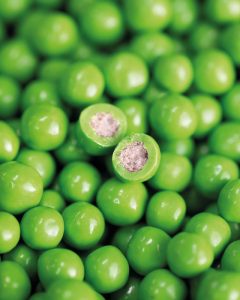
How would you define your creations?
When I develop recipes or concepts, I now have to start with two simple questions: could the average person create this, and can it be made within the time constraints? Obviously, taste is the most important factor, however, to play with a concept or flavour combination, to challenge someone’s perception of what they are about to eat, is equally satisfying. I try to push myself to use different flavours and ingredients. It doesn’t always work, but that is the addictive part of this industry. I want to keep pushing the boundaries.
Tell us a bit more about the creations you present in So Good magazine. What is the idea?
Every creation begins at a different point. 4 P’s started from the Peas in a Pod garnish and I worked the entremet around that. As pistachio is one of my favourite flavours, it was fairly easy to come up with the components of the entremet and the other accompanying flavours.
Umami started in the same way: with a beautiful decoration and fascination for Japanese ingredients. White miso paste and chocolate are a great combination, and caramel and sweetcorn seemed like obvious choices.
The Sesame Lemongrass bar is a perfect combination of chocolate, almond and a kick of lemongrass, with a crunch provided on both sides of the ganache.
